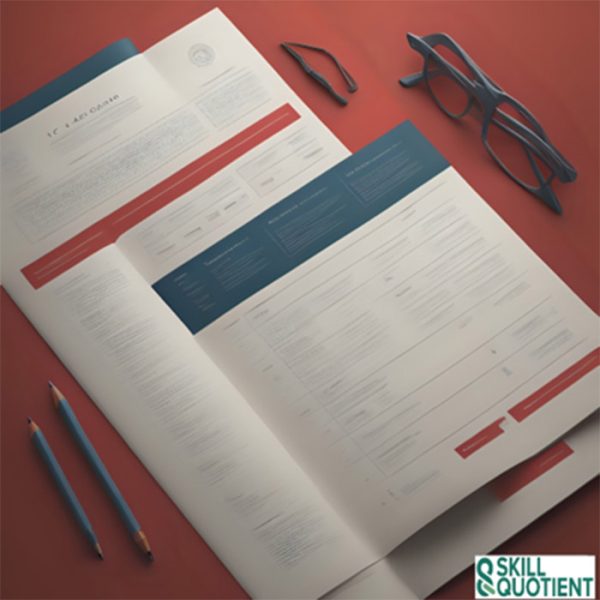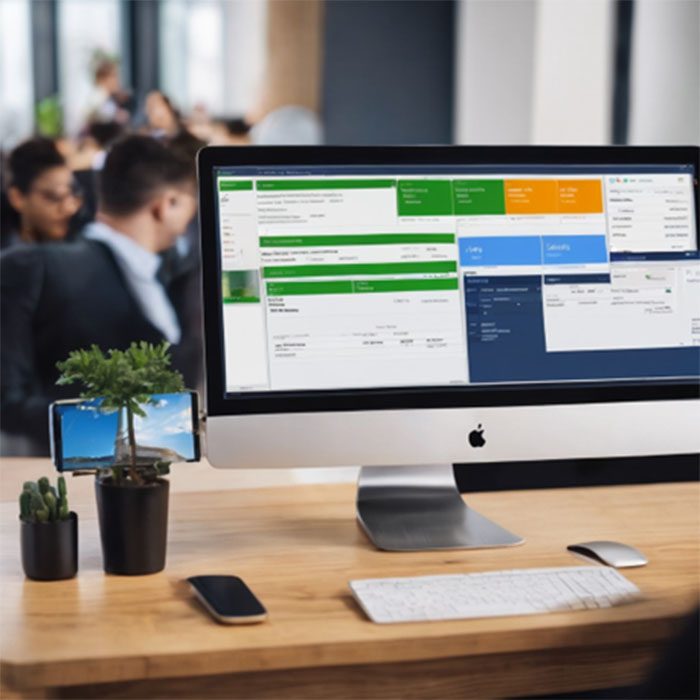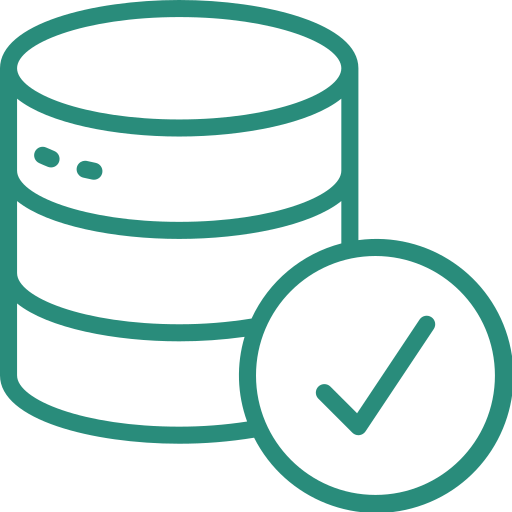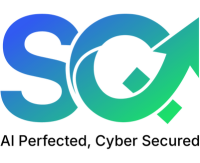e-Invoicing Malaysia
Request a Demo
e-Invoicing in Malaysia
A Comprehensive Overview
The National E-Invoicing Initiative in Malaysia is all about making invoicing between businesses more digital and streamlined. The goal is to shift from paper-based invoices to electronic ones, creating a system where various accounting software and Enterprise Resource Planning (ERP) systems can easily exchange e-invoices. This initiative promotes a standardized approach, allowing different systems to talk to each other smoothly and efficiently. In simple terms, it’s like upgrading the way businesses send and receive bills, making the whole process faster and more compatible with different types of software.

The Malaysian government has been proactive in promoting e-Invoicing, recognizing its potential to enhance transparency, reduce fraud, and improve overall business efficiency. With the adoption of standardized formats and compliance frameworks, businesses in Malaysia are transitioning towards electronic invoicing to comply with regulatory requirements and optimize their financial operations. This shift not only aligns with global trends but also positions Malaysia as a forward-thinking player in the digital economy.
Benefits of e-Invoicing

The adoption of e-Invoicing yields a spectrum of advantages, enhancing the fiscal landscape for both taxpayers and businesses. Key benefits include:
Automation of Invoicing Processes: The introduction of e-Invoicing reduces reliance on manual efforts, minimizing the potential for human errors. This is achieved through a unified process that digitally creates and submits transaction documents and data.
Facilitation of Efficient Tax Filing: The seamless integration of systems under e-Invoicing not only expedites tax reporting but also ensures accuracy in the filing process. This efficiency contributes to a more streamlined and error-free tax compliance.
Operational Streamlining: e-Invoicing goes beyond tax-related benefits, bringing about enhanced operational efficiency. This translates into significant time and cost savings for businesses, allowing resources to be allocated more strategically.
Digitalization of Financial Reporting: A pivotal aspect of e-Invoicing is the digitalization of financial reporting. This aligns financial processes with industry standards, bringing about a comprehensive transformation in how financial data is managed and reported.
Enhanced Transparency: The digital nature of e-Invoicing promotes transparency in financial transactions, fostering trust between business entities. This transparency is crucial for building robust financial relationships and facilitating smoother business operations.
Reduction in Paper Usage: e-Invoicing contributes to environmental sustainability by reducing the reliance on paper. This not only aligns with eco-friendly practices but also leads to cost savings associated with traditional paper-based invoicing.
In essence, the implementation of e-Invoicing transcends mere convenience, ushering in a new era of accuracy, efficiency, and transparency in financial and tax-related processes.
Decoding Government Regulations
Compliance with Malaysian E-Invoicing Standards
In the pursuit of aligning with global e-invoicing trends, the Malaysian government has proactively undertaken initiatives to integrate such practices into its regulatory framework. The Ministry of Finance, acknowledging the evolving landscape, formally announced the adoption of the e-invoice initiative in Malaysia in its 2023 Pre-Budget statement, specifically aiming to digitize tax administration activities. However, the Inland Revenue Board of Malaysia (IRBM) declared in October 2023 that the implementation of e-invoicing would be deferred and gradually phased in, starting from August 1, 2024.
As the regulatory authority overseeing e-invoicing activities, IRBM issued comprehensive guidelines in July 2023 outlining key aspects of e-invoice implementation. These guidelines elucidate e-invoice concepts, implementation methodologies, compliance impacts, record-keeping practices, and address common questions and concerns. Notably, IRBM formalized collaboration by signing a Memorandum of Understanding (MoU) with the Malaysian Digital Economy Corporation (MDEC) to jointly advance the e-invoice initiative.
MDEC, designated as the Peppol Authority for Malaysia, is actively working towards establishing an interoperable E-Invoicing framework by early 2024. Technical guidelines tailored to local requirements are slated for completion by the end of 2023 and will be publicly accessible on the MDEC website. The overarching goal of this initiative is to introduce a standardized framework for electronic invoice transmission, ensuring compatibility among various accounting software and ERP systems. This system will facilitate the seamless sending of e-invoices without requiring direct integration, akin to the operational principles of credit cards or telecommunication networks.
Within the purview of its role as the Peppol Authority, MDEC is responsible for managing the implementation of the Peppol framework in Malaysia. This includes adapting Peppol standards to align with local requirements and accrediting service providers that adhere to these standards. The comprehensive aim is to ensure the effective and harmonized integration of e-invoicing practices within the Malaysian regulatory landscape.
The Imperative of e-Invoicing
Identifying the Why, Who and When
The introduction of e-Invoicing in Malaysia is not just a technological shift; it’s a strategic imperative. The implementation of e-Invoice will be executed in a phased approach to ensure a seamless transition. This rollout has been meticulously planned, taking into consideration turnover or revenue thresholds. The objective is to afford taxpayers ample time for preparation and adaptation to the e-Invoice system.

The structured e-Invoice implementation timeline is as follows:
From 1st August 2024: e-Invoicing will be mandatory for taxpayers with an annual turnover or revenue exceeding RM100 million.
From 1st January 2025: Obligatory e-Invoicing extends to taxpayers with an annual turnover surpassing RM25 million.
From 1st July 2025: The final phase of implementation mandates e-Invoicing for all taxpayers, irrespective of turnover or revenue.
This phased approach is designed to facilitate a gradual and systematic integration of e-Invoicing, ensuring that businesses of varying sizes have the necessary time and support to seamlessly adopt this transformative digital invoicing system.
Empowering Businesses
What Skill Quotient Technologies Brings to the Table

Skill Quotient Technologies heralds a new era of business empowerment with the introduction of SMARTeIS (Smart Electronic Invoicing System), an all-encompassing e-Invoicing solution meticulously crafted for the Malaysian market. Developed under the discerning guidance of preeminent financial experts in Malaysia, SMARTeIS stands as the epitome of innovation. A comprehensive survey of prevailing invoicing systems in Malaysia served as the foundation, allowing our adept technical team to engineer a solution that not only seamlessly integrates with existing systems but also facilitates a user-friendly adoption process. Prioritizing adherence to the stringent regulations set forth by the Inland Revenue Board of Malaysia (IRBM), SMARTeIS ensures full compliance while concurrently prioritizing an unparalleled user experience. The culmination of these efforts positions SMARTeIS as the unrivaled leader in the realm of e-Invoicing, exemplifying Skill Quotient Technologies’ commitment to advancing businesses with superior technological solutions.
Facilities Galore
Unveiling the Features of SMARTelS
SMARTeIS (Smart Electronic Invoicing System) represents a comprehensive e-Invoicing solution seamlessly integratable with any existing Invoicing System in Malaysia. We take pride in highlighting key features, including:
Unified User Interface: Offering a singular interface for effortless e-invoice generation.
Data Validation: Rigorous upfront validation of data in alignment with IRB standards.
Flexibility: SMARTeIS adeptly converts various file formats (XML, CSV, XLS, etc.) to JSON/XML, transmitting to IRB and seamlessly returning to ERP systems.
Cybersecurity and Data Governance Compliance: Ensuring 100% compliance with robust cybersecurity and data governance measures.
Reconciliation: Implementing a two-way reconciliation between ERP and IRB for accuracy.
All-in-One Solution: SMARTeIS supports a spectrum of e-invoicing scenarios, encompassing invoices, credit notes, debit notes, refunds, cancellations, and notifications.
End-to-End Solution: Our tax and technology teams provide comprehensive support through your transition and beyond.
ERP/IT Systems Agnosticism: SMARTeIS collaborates seamlessly with SAP, Oracle, and other ERP providers.
ERP Customization: Minimal or no changes based on client needs, with standard customization options.
Top-notch Security: Ensuring encryption and security for data at rest or in motion.
Timely Installation: Swift configuration and User Acceptance Testing (UAT) completion within a few days as a standard option.
Multiple Delivery Options: Offering alternative solutions, including real-time and batch mode, tailored to your specific needs and budget.
Comprehensive Package: Fully integrated with the IRB portal for a holistic solution.
Customized Insights: Providing the option to receive periodic dashboards, reports, and data analytics.
Product Support: Offering a 24X7 technology support helpline and a dedicated Single Point of Contact (SPOC) for assistance.
SMARTeIS from Skill Quotient Technologies is not just a solution; it’s a commitment to efficiency, compliance, and unwavering support for your business processes.
Trusted Expertise
Why Skill Quotient Technologies is Your E-Invoicing Partner
Skill Quotient Technologies proudly marks its successful completion of eight years in Malaysia. As a multinational software company, our global headquarters are strategically located in Kuala Lumpur, Malaysia. Our international footprint spans a workforce of over 1000 dedicated professionals. Demonstrating robust and sustained growth, we have consistently maintained an impressive growth rate.
In our pursuit of excellence, we have forged exclusive partnerships with 15 esteemed organizations. Notably, Skill Quotient Technologies holds the prestigious status of being a certified Gold Partner with Microsoft, attesting to our commitment to delivering top-tier technological solutions. Additionally, we have achieved CMMI Level 3 certification, underscoring our dedication to maintaining high-quality software development processes. Moreover, our adherence to information security standards is evident through our ISO/IEC27001:2013 certification.
In furtherance of our commitment to industry-leading standards, Skill Quotient Technologies is honored to hold partnerships with SAP and OpenText, adding to our portfolio of esteemed affiliations.
Skill Quotient Technologies remains unwavering in its commitment to innovation, global collaboration, and the delivery of cutting-edge software solutions.
Capabilities

This is the heading
Lorem ipsum dolor sit amet, consectetur adipiscing elit. Ut elit tellus, luctus nec ullamcorper mattis, pulvinar dapibus leo.Lorem ipsum dolor sit amet, consectetur adipiscing elit. Ut elit tellus, luctus nec ullamcorper mattis, pulvinar dapibus leo.

This is the heading
Lorem ipsum dolor sit amet, consectetur adipiscing elit. Ut elit tellus, luctus nec ullamcorper mattis, pulvinar dapibus leo.Lorem ipsum dolor sit amet, consectetur adipiscing elit. Ut elit tellus, luctus nec ullamcorper mattis, pulvinar dapibus leo.
Experience SMARTelS
Request a Demo Today
SMARTeIS
The Seamless e-Invoicing Solution by Skill Quotient Technologies

Flexibility
SMARTeIS can convert any file format (XML, CSV, XLS, etc) to JSON / XML and upload in IRBM myInvois and process the write back.

Single user interface
User to access only one interface for e-invoice generation.

Data validation
Upfront validation of data from the perspective of IRBM.

Reconciliation
2-way reconciliation between
ERP vis-à-vis IRBM myInvois.

All-in-one solution
SQ E-Invoice supports all myInvois scenarios to include invoices, credit notes, debit notes, refund, cancellations, and notifications.
